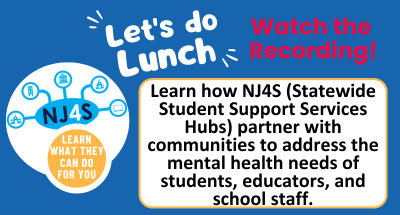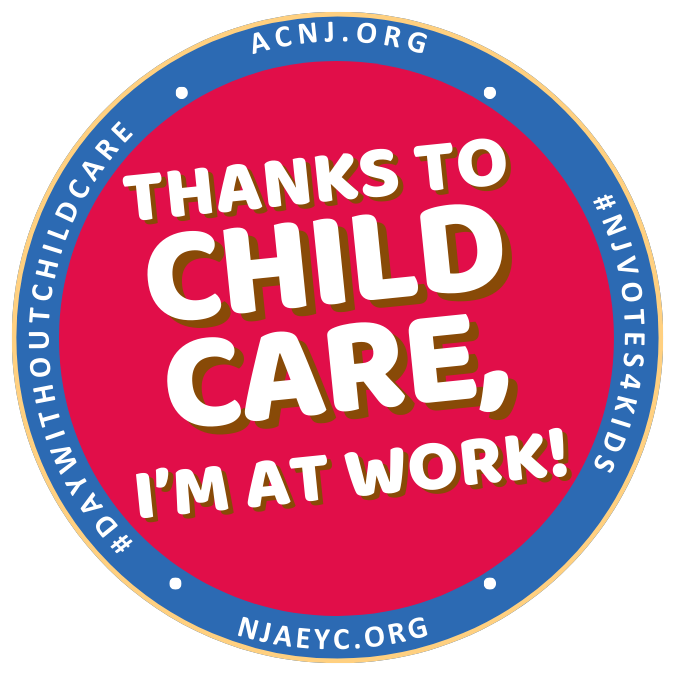Posted on May 20, 2024
TAKE ACTION!
Show your support for community colleges. Visit the New Jersey Council of County Colleges and use their action center to send a message to the state legislative leadership today.
Posted on May 20, 2024
Show your support for community colleges. Visit the New Jersey Council of County Colleges and use their action center to send a message to the state legislative leadership today.
Posted on May 20, 2024
ACNJ staff members Shadaya Bennett and Keith Hadad were invited to a site visit and roundtable discussion with Congressman Tom Kean Jr. (NJ-07), and his wife, Rhonda, at Temple Emanu-el’s Early Child Care Center in Westfield. Organized by New Jersey Association for the Education of Young Children (NJAEYC), this event focused on the child care staffing crisis and why increased funding is necessary to help revitalize the industry.
On May 14, Representatives of NJAEYC, ACNJ, the Temple and specifically its Child Care program, and Congressman Kean all discussed how access to affordable quality child care is essential to a stable and growing economy. Bennett detailed how ACNJ has also been advocating to the state’s legislators to increase funding so providers can raise the wages of their staff to properly compensate for their unique skills and the value that they bring to the community.
“ACNJ, as well as NJAEYC, is having conversations with members of leadership to get them to understand the actual need and to understand that investing in child care shouldn’t be looked at differently than investing in our K-12 system. It’s just as important and maybe even more important,” Bennett said, while conversing directly with Congressman Kean. The congressman agreed, replying, “If we don’t have a reliable and safe child care infrastructure, we don’t have a functioning economy.”
The lack of proper compensation for child care providers in our state and beyond has also snowballed into a shortage of proper quality and experience in the field. If provided with the take-home pay and benefits that these workers actually deserve, then more qualified and skilled employees will fill this workforce. As Meghan Tavormina, the Director of Public Policy for NJAEYC, said, "It's a profession, and not an entry-level job, despite the way that the system is treating it right now. We want these people professionalized. We want them to have paid time off, retirement funds, health benefits, etc.”
My wife Rhonda and I enjoyed touring the Temple Emanu-El Early Education Center with the @njaeyc in Westfield.
— Congressman Tom Kean (@CongressmanKean) May 14, 2024
We know how important it is to have affordable, accessible, and quality childcare and early education. pic.twitter.com/HR0q08C1ID
Posted on May 14, 2024

By Isaiah Fudge Director, Positive Youth Development
For more information on this topic, contact Isaiah at ifudge@acnj.org.

Nestled in 15 locations throughout New Jersey are hubs rich with professionals to help support mental wellness for NJ’s youth. The NJ Statewide Student Support Services (NJ4S) model is a hub and spoke one, where mental health professionals and other staff are deployed throughout communities to provide wellness services and referrals for youth. The recently engineered plan has three tiers of support, all of which encourage partnership, coordination, and collaboration among various stakeholders. Each hub serves a specific region, with staff working with several schools and other community members in each school’s vicinity.

What NJ4S Is:
NJ4S is a preventive approach to youth mental wellness. Each hub offers three tiers of support:
What NJ4S Is Not:
NJ4S hubs are not long-term outpatient centers; they are not designed for long-term ongoing treatment of mental health-related issues, nor do they provide crisis intervention.
How You Can Get Involved:
NJ4S hubs host several info sessions and other events throughout the calendar year. These events range from sessions around study skills to events on grief. These are Tier 1 events, meaning they are open to the public, and can be held in-person or virtually. Even though Tier 1 events are open to the public, each offering is dedicated to a specific audience—i.e. middle school students, elementary students, parents, etc. Students and families can access a list of these events here. Accessing Tier 2 and Tier 3 services will require applications from the schools already officially partnered with local 4S hubs. Youth and their parents can speak to administrators, guidance counselors, social workers, or teachers at their school and request for their school to sign up to participate with NJ4S if the school has not already done so.
For more information on NJ4S and the services it offers, visit https://nj4s.nj.gov/s/.
To access information about the hub in your county, see below. Print or download the list here.
Atlantic and Cape May Counties: Acenda, Inc.
Bergen County: Children’s Aid and Family Services, Inc. (CAFS)
Burlington County: Legacy Treatment Services
Camden County: Center for Family Services, Inc. (CFS)
Cumberland, Gloucester, and Salem Counties: Acenda, Inc.
Essex County: Family Connections, Inc.
Hudson County: Partners in Prevention
Hunterdon, Somerset, and Warren Counties: Center for Family Services, Inc.
Mercer County: Catholic Charities, Diocese of Trenton
Middlesex County: Rutgers University Behavioral Health Care (UBHC)
Monmouth County: Preferred Behavioral Health Group
Morris and Sussex Counties: Mental Health Association of Essex and Morris, Inc.
Ocean County: Preferred Behavioral Health Group
Passaic County: New Jersey Community Development Corporation
Union County: Prevention Links
Posted on May 13, 2024
On May 13, parents, early childhood staff and caregivers across New Jersey and the nation participated in “A Day Without Child Care,” bringing attention to the essential role of our undervalued and underpaid early care and education workforce. Armed with stickers that say “Thanks to child care, I’m at work!” families were asked to imagine how a day without child care would disrupt their routine and share these moments on social media using #DayWithoutChildCare and #NJVotes4Kids.
Funding New Jersey’s child care infrastructure is just as essential as funding our roads and railways. Our child care system has been in a long-standing crisis due to a lack of accessibility, staffing shortages, and affordability challenges. Most child care providers generate just enough revenue to keep pace with minimum wage, limiting what they can offer staff and often discouraging qualified individuals from remaining in or entering the field. As New Jersey’s legislature deliberates the state budget, a “Day Without Child Care” was a call to action to invest in our children and those who care for them.

Posted on May 10, 2024
Click on the page to flip to the next page.